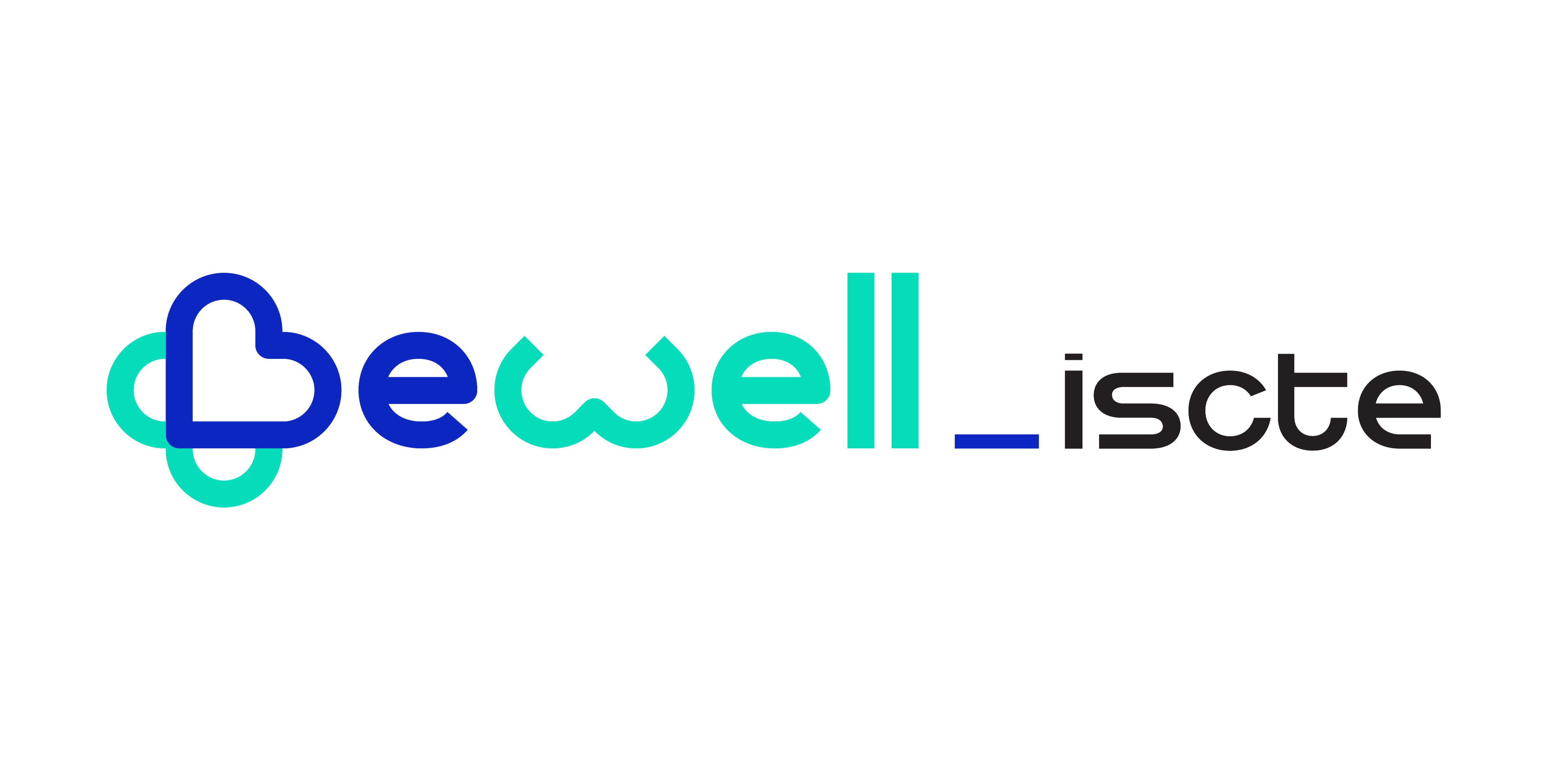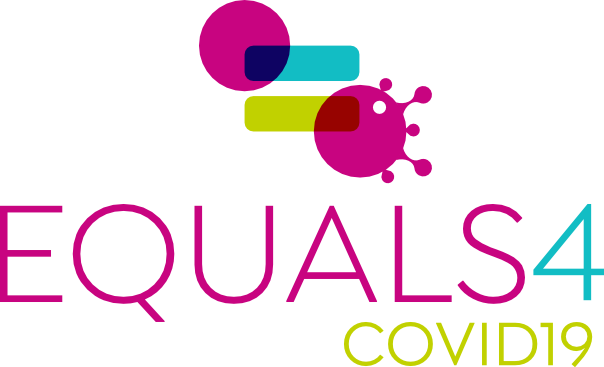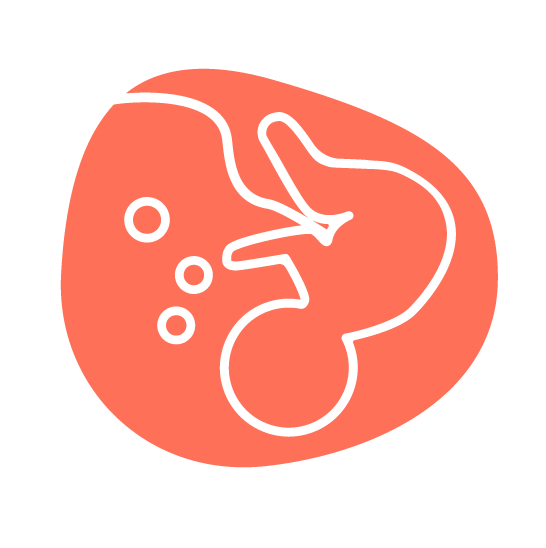Carta Educativa de Cascais
Investigadora
O projeto tem como principais objetivos, em primeiro lugar, desenvolver um estudo de diagnóstico aprofundado sobre o concelho de Cascais (caraterização territorial, demográfica e projeções demográficas, socioeconómica) e respetivo sistema educativo, público e privado (rede de escolas, população escolar, desempenho escolar, projetos e parcerias educativas); e, em segundo lugar, elaborar uma proposta técnica de carta educativa e de plano estratégico educativo municipal, documento da competência da Câmara Municipal, que responda aos atuais desafios da escola e às necessidades do concelho no domínio da educação, tendo como vocação a promoção do sucesso escolar e da qualidade das aprendizagens, num quadro de reforço do papel recursivo das autarquias no sistema educativo em articulação com programas e projetos europeus, nacionais e regionais; através de uma metodologia multimétodo com uma forte componente de promoção da participação dos stakeholders e atores locais nas fases do diagnóstico e desenho da política educativa local e, posteriormente, nas fases da implementação/monitorização e avaliação final.
Informação do Projeto
2025-01-23
2026-01-22
Parceiros do Projeto
- CIES-Iscte - Líder
Carta Educativa de Palmela
Investigadora
Com o presente trabalho pretende-se elaborar a Carta Educativa de Palmela preparando-a para o desenvolvimento de um planeamento estratégico educativo municipal com um alcance mais alargadosobre o sistema educativo local, e não apenas focado na gestão da rede de estabelecimentos, capaz de responder aos atuais desafios da escola e às necessidades do concelho no domínio da educação,tendo como vocação a promoção do sucesso escolar e da qualidade das aprendizagens e a redução do abandono escolar precoce, num quadro de reforço do papel recursivo das autarquias no sistemaeducativo.
Informação do Projeto
2024-05-09
2024-09-30
Parceiros do Projeto
BeWell-Iscte
Investigadora
Este projeto tem como objetivo geral a promoção da saúde mental e bem-estardos/as estudantes do Iscte-Instituto Universitário de Lisboa, com base no modelo Stepped Care, desenvolvido no programa para a promoção da saúde mental no ensino superior - Programa ACCES. Focando-se numa abordagem de promoção e prevenção, e adotando uma lógica de participação coletiva, identificam-se os seguintes objetivos específicos: 1. Desenvolvimento de atividades de promoção da saúde mental, prevenção e ajustamento (nível 1 e 2), com vista à melhoria das competências relacionadas com a literacia em saúde mental, resiliência mental e gestão de stress; 2. Reforço das respostas psicoterapêuticas e psiquiátricas para estudantes com perturbações mentais comuns de gravidade ligeira a moderada (nível 3), com vista à intervenção precoce e evitamento de patologias mais graves; 3. Fortalecimento dos mecanismos de identificação de situações de risco ou doença mental grave e o seu encaminhamento para os serviços de saúde especializados (nível 4 e 5); 4. Promoção da participação ativa da associação de estudantes no desenvolvimento, implementação e avaliação das atividades;5. Inclusão de estudantes com necessidades educativas específicas e outros grupos vulneráveis (estudantes de 1º ano, estudantes deslocados, nacionais e internacionais, estudantes beneficiários da ação social escolar, estudantes bolseiros provenientes de países PALOP, estudantes mulheres, e estudantes LGBTQIA+), de forma transversal às atividades desenvolvidas.
Informação do Projeto
2024-05-02
2026-09-30
Parceiros do Projeto
IN_Iscte – espaço para crescer
Investigadora
O objetivo estratégico do projeto é reduzir o abandono e promover o sucessoacadémico dos estudantes no 1.º ano, pela primeira vez no 1.º ciclo de estudos,assegurando a regularidade de iniciativas neste âmbito.
A candidatura surge na continuação do projeto In_Iscte, a decorrer, ajustando-se agora às ambições do programa Impulso Mais Digital. Identificam-se quatro objetivos específicos:
1. Melhorar a integração e o sucesso dos novos estudantes através de programas de mentoria e tutoria;2. Promover a partilha e disseminação de práticas de inovação pedagógica dentro e fora da sala de aula, renovando e diversificando metodologias e instrumentos tecnológicos;3. Desenvolver mecanismos de identificação, comunicação e acompanhamento de estudantes em risco;4. Reforçar as competências de autoaprendizagem e de trabalho em equipa.
Como objetivo transversal, refira-se o alargamento da base social dos estudantes doensino superior. Neste sentido, tendo como foco os estudantes inscritos no 1.º ano pela primeira vez, será dada especial atenção a grupos tradicionalmente sub-representados ou com dificuldades identificadas na integração no ensino superior: estudantes de contingentes prioritários/especiais - com enfase aos estudantes com deficiência; estudantes beneficiários da ação social escolar; estudantes bolseiros provenientes de países PALOP; estudantes deslocados da sua residência habitual por motivos de estudo; trabalhadores-estudantes (Almeida et al, 2003; Machado et al. 2003; Martins, Mauritti e Costa, 2005 e 2008; Martins, 2015; Martins, Carvalho, Ávila & Costa, 2017; Martins, 2020; Martins e Ramos, 2020; Martins, Mauritti & Machado, 2023; Matias et al. 2023; Mauritti et al. 2023; Mauritti, Pintassilgo et al. 2023; SEAQ-UQ-Iscte, 2023). A definição dos objetivos articula-se com as áreas prioritárias de intervenção identificadas no aviso de abertura. Na prossecução destes objetivos, desenvolver-se-ão quatro eixos de atividades principais: 1) um programa de mentorias ...
Informação do Projeto
2024-04-02
2026-06-30
Parceiros do Projeto
Espaço para crescer
Investigadora
A adaptação e integração dos estudantes no Ensino Superior tem sido largamente abordada pela investigação, nomeadamente no que diz respeito ao impacto do processo de adaptação no sucesso e abandono escolar. A integração dos novos estudantes num novo contexto social e académico pode constituir-se como um momento crítico nos processos de adaptação, sendo que o período de chegada e os primeiros tempos de permanência na instituição são o momento-chave para intervir preventivamente. O acolhimento de novos estudantes é uma prioridade do Iscte. As relações entre a integração nas relações sociais do ambiente académico (dentro e fora da sala de aula), saúde mental e desempenho académico tornou-se particularmente evidente no contexto mais recente do período COVID-19.
Os efeitos do isolamento social e da aprendizagem exclusivamente on-line são duradouros, sendo fundamental investir na recuperação através do reforço das iniciativas de acolhimento. A aposta em estratégias de prevenção, com carácter universal, são uma forma eficaz de obtenção de resultados positivos com os estudantes quer ao nível da sua saúde mental, quer no ajustamento à universidade.
Informação do Projeto
2023-08-01
2024-11-30
Parceiros do Projeto
Erasmus+ Educação e Formação: caracterização, análise e avaliação da qualidade das residências para estudantes do ensino superior
Investigadora
O estudo de caracterização, análise e avaliação da qualidade das residências para estudantes do ensino superior pretende mapear e analisar as estruturas e as condições de alojamento em residência de estudantes do ensino superior. Propõe-se abranger o universo de residências sob gestão de Instituições de Ensino Superior de todo o território nacional (incluindo regiões autónomas), universitárias e politécnicas, públicas e privadas. Exclui-se da análise os equipamentos do setor empresarial e do terceiro setor. O desenho do estudo está fundamentado numa abordagem de triangulação metodológica quanti-qualitativa.
Informação do Projeto
2023-03-03
2023-10-31
Parceiros do Projeto
Concepção e Implementação do Laboratório de Competências Transversais na Universidade Amílcar Cabral a partir do caso Iscte
Investigadora
Enquadrando-se num plano mais abrangente, com a duração total prevista de três anos, este projeto foca-se na conceção e desenho de implementação do programa de competências transversais, através da criação do Laboratório de Competências Transversais da Universidade Amílcar Cabral (UAC), e da respetiva oferta formativa, em parceria e com o suporte da estrutura estabelecida no Iscte.
A execução terá início em janeiro de 2023 com uma equipa composta por elementos de ambas as universidades e com a coordenação de Rosário Mauritti e Sónia Pintassilgo (do CIES-Iscte) e de Raúl Mendes Fernandes (da Universidade Amílcar Cabral).
O ponto de partida para a proposta na vertente do ensino, dirigida à parceria com a UAC, é a experiência acumulada, nos últimos anos, de receção e acolhimento de estudantes de países de língua oficial portuguesa, na oferta formativa do Iscte, nos três ciclos de ensino (licenciatura, mestrado e doutoramento), nomeadamente, de estudantes guineenses.
O Laboratório de Competências Transversais tem, ainda, assumido um papel fundamental, nos últimos anos, de atendimento e acolhimento inicial dos estudantes recém-inscritos e chegados ao Iscte, do seu encaminhamento para diferentes serviços, de identificação de necessidades, de ajustamento individual da oferta formativa transversal a dirigir a cada um. A oferta formativa, no que diz respeito às competências transversais, tem por objetivo dotar os estudantes de um conjunto de competências básicas que os capacitem para um maior e melhor aproveitamento da oferta formativa prevista no plano de estudos de cada estudante. Assim, as competências transversais são oferecidas, de forma abrangente, aos estudantes de todos os cursos e ciclos de estudos, estando previstas em todos os cursos de 1º ciclo, mas podendo ser oferecidas e frequentadas, para além das previstas no plano de estudos, de acordo com as necessidades de cada estudante.
Considerando a orientação universal das universidades para a articulação entre o...
Informação do Projeto
2023-01-01
2023-12-31
Parceiros do Projeto
- CIES-Iscte - Entidade Executora
- UAC - (Guiné)
Revisão da Carta Educativa do Concelho de Estremoz
Investigadora
A elaboração da Carta Educativa é da competência da Câmara Municipal e deve conter a caracterização da rede escolar (edificado e equipamentos), o diagnóstico concelhio, projeções de desenvolvimento demográfico e socioeconómico e uma proposta de intervenção ao nível da rede pública. A revisão desse documento em caso de criação ou encerramento de estabelecimentos escolares (do Pré-escolar, Ensino Básico e Secundário), de desconformidade com os princípios, objetivos e parâmetros técnicos do ordenamento da rede educativa e, de forma obrigatória, de dez em dez anos.
Com o presente trabalho pretende-se rever a Carta Educativa de Estremoz, com vista a prepará-la para o desenvolvimento de um Plano Estratégico Educativo Municipal com um alcance mais alargado, respondendo aos atuais desafios da escola e às necessidades do concelho no domínio da educação, tendo como vocação a promoção do sucesso escolar e da qualidade das aprendizagens, num quadro de reforço do papel recursivo das autarquias no sistema educativo.
Informação do Projeto
2022-06-27
2023-06-27
Parceiros do Projeto
Revisão da Carta Educativa do Concelho de Sesimbra e Elaboração do Plano Estratégico Educativo Municipal
Investigadora
A elaboração da Carta Educativa é da competência da Câmara Municipal e deve conter a caracterização da rede escolar (edificado e equipamentos), o diagnóstico concelhio, projeções de desenvolvimento demográfico e socioeconómico e uma proposta de intervenção ao nível da rede pública. A revisão desse documento em caso de criação ou encerramento de estabelecimentos escolares (do Pré-escolar, Ensino Básico e Secundário), de desconformidade com os princípios, objetivos e parâmetros técnicos do ordenamento da rede educativa e, de forma obrigatória, de dez em dez anos.
Com o presente trabalho pretende-se rever a Carta Educativa de Sesimbra, com vista a prepará-la para o desenvolvimento de um Plano Estratégico Educativo Municipal com um alcance mais alargado, respondendo aos atuais desafios da escola e às necessidades do concelho no domínio da educação, tendo como vocação a promoção do sucesso escolar e da qualidade das aprendizagens, num quadro de reforço do papel recursivo das autarquias no sistema educativo.
Informação do Projeto
2022-06-06
2023-06-06
Parceiros do Projeto
Elaboração de Carta Social Supramunicipal - Baixo Alentejo
Investigadora
A proposta para elaboração da Carta Social do Baixo Alentejo tem dois grandes objetivos. O primeiro é fazer um estudo de diagnóstico sobre o território do Baixo Alentejo que inclua a sua caracterização física, demográfica e socioeconómica, a georreferenciação de todas as respostas sociais atualmente existentes e, também, um exercício de prospeção da rede de serviços e equipamentos sociais face às necessidades do território devidamente enquadrado no quadro de evolução demográfica e socioeconómica da região. O segundo objetivo é o de elaborar uma proposta de Carta Social do Baixo Alentejo seguindo as orientações definidas na Portaria nº 66/2021, de 17 de março.
Informação do Projeto
2022-03-01
2023-02-28
Parceiros do Projeto
Elaboração do Plano Estratégico de Desenvolvimento Intermunicipal da Educação no Alto Alentejo e Cartas Educativas Municipais
Investigadora
Informação do Projeto
2021-11-26
2023-06-30
Parceiros do Projeto
- CIES-Iscte - Líder
- CEDRU - (Portugal)
- IPP - (Portugal)
Equidade em saúde em tempos de pandemia: avaliação de impacto na saúde mental e bem-estar da população brasileira e cabo-verdiana em Portugal
Investigadora
O projeto EQUALS4COVID19 visa avaliar o impacto da pandemia COVID-19 na saúde mental e no bem-estar físico, mental e social da população imigrante em Portugal, e, em particular, de indivíduos jovens, adultos e adultos maiores-idosos com nacionalidade brasileira e cabo-verdiana e residentes nos distritos de Lisboa, Faro, Porto e Setúbal, incluindo os indivíduos que estavam/estiveram em quarentena ou isolamento, por infeção ou suspeita, tendo em conta diversos fatores, desde a ansiedade, a depressão e a resiliência, a fatores relacionados com a conciliação trabalho-família, o suporte social percebido, a situação face ao trabalho e o rendimento financeiro e expectativas face ao futuro. Tem como objetivos específicos e para os subgrupos populacionais em termos de nacionalidade, género, grupo etário, e distrito em estudo: 1. Identificar os fatores modificáveis de proteção ou de fragilização da saúde mental em contexto pandémico; 2. Caracterizar o acesso percebido aos serviços de saúde e a medidas de proteção individual; 3. Produzir recomendações para a política pública de integração de imigrantes NPT e de requerentes de asilo e boas práticas para a capacitação dos profissionais de saúde enquanto agentes privilegiados da promoção da saúde mental e do bem-estar no respeito pela diversidade individual e cultural.
Informação do Projeto
2021-09-01
2023-05-31
Parceiros do Projeto
- CIES-Iscte
- AIDFM - Líder (Portugal)
Atualização das Cartas Educativas e Elaboração do Plano Estratégico Educativo do Baixo Alentejo
Investigadora
Informação do Projeto
2021-02-01
2023-01-31
Parceiros do Projeto
- CIES-Iscte - Líder
Elaboração da Carta Educativa e do Plano Estratégico Educativo do Concelho de Oeiras
Investigadora
Informação do Projeto
2019-11-01
2021-06-30
Parceiros do Projeto
Fecundidade, Imigração e Aculturação: Abordagem interseccional das experiências e expectativas de sexualidade e reprodução em Famílias Cabo-verdianas e Portuguesas
Investigadora
CONTEXTO: O estudo das relações entre imigração, aculturação e fecundidade é recente, existindo ainda lacunas, em particular quanto às condicionantes socioculturais da fecundidade. Face ao declínio da fecundidade em Portugal, associado às mudanças estruturais do país nas últimas décadas, e perante o reconhecimento da importância da imigração para o aumento da natalidade, o projeto FEMINA foi desenhado para avaliar os fatores complexos de ordem individual, social, cultural e económica que determinam as experiências e expectativas de saúde sexual e reprodutiva (SSR) em famílias Cabo-verdianas e Portuguesas. O projeto reúne a expertise de investigadores do CIES-IUL e do ISAMB-FMUL nas áreas das Migrações, Família e Desigualdades em Saúde, visando uma abordagem compreensiva e interseccional de uma SSR promotora de segurança e satisfação. OBJETIVOS: A principal questão de investigação (QI) ("Qual é a influência da imigração e da aculturação dos imigrantes nas desigualdades em SSR em Portugal?") gerou várias QI subsidiárias: 1. Quais as diferenças entre os níveis e padrões de fecundidade nas (e entre as) mulheres portuguesas e cabo-verdianas? 2. Quais os fatores sociodemográficos (incluindo indicadores de etnicidade) associados à SSR de mulheres e homens portugueses e cabo-verdianos? 3. Quais as diferenças entre as práticas atuais e espectativas futuras relativas à SSR de mulheres e homens portugueses e cabo-verdianos? 4. Que crenças culturais e práticas de mulheres e homens portugueses e cabo-verdianos estão associados a uma melhor SSR e melhor utilização dos cuidados de SSR? 5. Quais as opiniões e valores de peritos e stakeholders relativamente a adaptar os serviços de SSR às populações immigrantes? 6. Como podem os serviços de SSR ser mais abertos à integração dos conhecimentos e práticas das culturas de origem dos imigrantes? MÉTODOS: Para responder a estas QI, foi desenvolvida uma abordagem multimétodo com recolha de dados quantitativos e qualitativos a nível individ...
Informação do Projeto
2018-10-01
2022-09-30
Parceiros do Projeto
- CIES-Iscte
- AIDFM - (Portugal)
Laboratório de Estudos Sociais sobre Nascimento
Investigadora
nascer.pt - Laboratório de Estudos Sociais sobre Nascimento é uma estrutura de investigação permanente, lançada em 2017 e acolhida pelo CIES-IUL. Tem como objetivo potenciar o conhecimento em torno das condições e características dos nascimentos em Portugal, contribuir para o crescimento da Sociologia do Nascimento e, ao mesmo tempo, promover o cruzamento entre estruturas e abordagens multidisciplinares no estudo do nascimento, a nível nacional e internacional. Através da produção e divulgação de informação de cariz essencialmente científico, o laboratório nascer.pt vem reforçar o debate em torno das práticas, políticas e paradigmas do Nascimento.
Informação do Projeto
2017-12-30
--
Parceiros do Projeto
Babies Born Better
Investigadora
Babies Born Better is an international online survey on childbirth experiences. It is an output of the COST Action IS 0907 "Childbirth Cultures, Concerns, and Consequences: Creating a dynamic EU framework for optimal maternity care" and it is currently coordinated by an International Steering Committee.
The survey is available in more than 23 languages, having obtained around 40,000 responses in each edition. In Portugal, data is managed and analysed by a multidisciplinary team of researchers from the University Institute of Lisbon: Mário Santos (CIES-IUL), Helena Carvalho (CIES-IUL), Marta Matos (CIS-IUL), Sónia Pintassilgo (CIES-IUL), and Dulce Neves (CIES-IUL).
Informação do Projeto
2016-03-03
2020-03-03
Parceiros do Projeto
- CIES-Iscte
- UCLan - Coordenador Técnico (Reino Unido)
- FMH - Coordenador Administrativo (Alemanha)
- COST IS1405 BIRTH - Líder (Reino Unido)

 English
English








